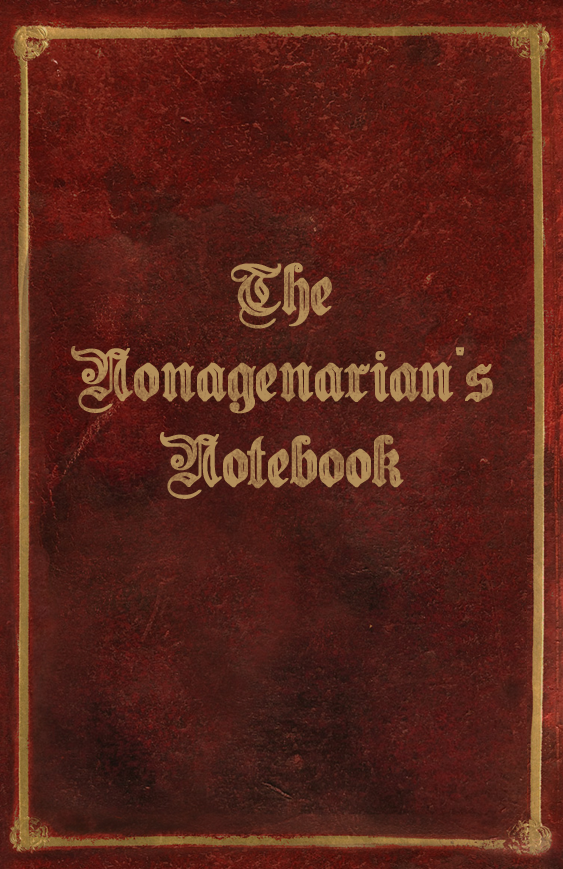Of all the arts in which the wise excel, Nature’s chief masterpiece is writing well. —Anonymous.
A disgruntled reader of the Ottawa Citizen recently complained in a letter to the editor about the grammatical errors that sometimes sully its pages. No newspaper, of course, has ever been able to achieve impeccable prose. In the hectic process of churning out a multi-page edition six days a week, occasional bloopers are inevitable.

Clearly, however, editorial lapses have become more frequent over the past few decades – in nearly all the dailies. This may be due in part to staff reductions and the elimination of proofreaders as journalism gradually transits from print to online publishing. But the decline of clarity that accompanies sloppy syntax also reflects a corrosion of communication in general, not just in newspapers.
Take, for example, the mutilation of the word unique. It is defined in the Oxford Dictionary as meaning “of which there is only one.” So it’s correct to state that the Taj Mahal or the Great Wall of China (or, thankfully, Donald Trump) is unique, but not a hurricane or an athletic feat, no matter how spectacular. Even worse is describing something as “very unique or most unique,” a common solecism of today’s radio and TV commentators.
The same misusage has befallen the word “issue.” This word has many legitimate definitions, including copies of a journal, an outflow, or a subject of discussion or debate. But in recent years it has become an all-purpose synonym for “problem” – any kind of problem: with health, finances, politics, sports, nutrition, travel, relationships, even the climate. You can make an “issue” out of anything these days, and I take “issue” with it.
The missing apostrophes
The misuse or omission of the apostrophe is also widely prevalent. The confusion between “its” and it’s” is common, and so is the failure to add an “’s” to the possessive singular of all nouns, even those ending with an “s”. As William Strunk and E.B. White remind us in their superbly co-authored The Elements of Style, it’s Charles’s friend and Burns’s poems, not Charles’ friends and Burns’ poems.An especially egregious omission of the apostrophe is displayed in the sign that adorns every “Tim Hortons” restaurant in Canada. The name of the founder of this chain is Tim Horton, not Tim Hortons. So, while it would be okay to pluralize his name when referring to two or more of his diners, doing so for just one is inexcusable. The correct sign over each should be “Tim Horton’s,” and – for me at least – the lack of that obligatory apostrophe is aggravating, especially for a franchise that originated in Canada. Most of the American chains, such as McDonald’s and Wendy’s, show more respect for the mother tongue.
The most prominent abuse of English in Canada is being perpetrated by the Bank of Nova Scotia. Its slick slogan – You’re richer than you think – is repeated dozens of times a day, both in print and on the air. It’s as ungrammatical as it is illogical.
The word “richer” is the comparative form of “rich,” so it’s impossible for you to be richer unless you first become rich. If Scotiabank were directing its message to people who are already rich, it would make some kind of sense, since the rich always want more. But clearly it is targeting members of the non-rich middle class. To be correct, then, it should be changed to something like You’re not as poor as you think. But I know such veracity would never appeal to the bank’s profit-propelled executives or even to most of its customers; so I’m resigned to being told, over and over again, that I’m richer than I think. All I can do is wince every time I see or hear it.
Astronomical misnomers
Another distressing misuse of English is the failure to properly name our planet. We call it “the earth” – usually with a lower-case e instead of the capital E to which it is entitled. The names we’ve given other planets – Mars, Venus, Jupiter, etc – are all capitalized, while ours is all too frequently lower-cased.As for the superfluous “the,” we haven’t applied it to any other planet. We don’t say “the Mars” or “the Saturn” or “the Venus,” so why apply the gratuitous definite article to our own planet? It’s preposterous.
Some confusion arises because we also refer to the soil we walk on as “the earth.” It isn’t – and shouldn’t be – capitalized, which probably explains why the name of our planet is so often deprived of the necessary capital E while being encumbered with the unnecessary “the.”
Our satellite suffers the same appelative negligence. We simply call it “the moon,” as if it were the only one in existence instead of just one of 182 moons orbiting planets in the solar system. The largest of these moons have also been given capitalized names, such as Deimos, Callisto, Europa and Titan --leaving ours orbiting alone in titular anonymity.
This nominal dereliction could quickly be remedied by endowing our planet and its moon with distinctive Roman or Latin names. That’s what we’ve done with all the other planets and moons – and with most days and months on the calendar, as well – so why the long delay at home?
Some astronomers and science-fiction writers have already chosen the appropriate names for us. They call our planet “Terra” and the moon “Luna” – Latin for “earth” and “moon.” It’s unlikely that anyone would ever spell Terra with a lower-case t or refer to it as “the Terra” – or the moon as “the Luna.”
Regrettably, it’s also unlikely that this long-delayed suitable naming (or renaming) of our planet and its moon will be widely adopted any time soon. The only consolation is that at least the adjectives “terrestrial” and “lunar” are traditionally used to describe the attributes of Earth and its moon.
So hope is still alive. It may not be unduly optimistic to anticipate that these adjectives, eventually, will also be transformed into nouns.
*
I hope that, in penning this critique of sloppy English, I won’t be found guilty of grammar snobbery. I’m quite aware, as Melissa Fabello points out in an essay for everyday feminism magazine, that there’s a difference between understanding standard grammar and demanding it. I agree with her that “there’s a difference between appreciating language and being a snob.”I know that English is a fluid and ever-evolving language that can never be confined by strict rules of usage. Many people, through no fault of their own, have been denied tutelage in formal English. Rules of grammar should never stand in the way of effective communication.
But there is still a need to strive for clarity in the exchange of news and views, if only to avoid misunderstanding and ambiguity. I don’t think having this fundamental concern makes me a purist.
Ed Finn was Senior Editor at the CCPA and editor of the CCPA Monitor from 1994-2014. Formerly, as a journalist, he worked at The Montreal Gazette and for 14 years wrote a column on labour relations for The Toronto Star. He also served for three decades as a communications officer for several labour organizations, including the Canadian Labour Congress and the Canadian Union of Public Employees. And yes, Ed is a true nonagenarian, having celebrated his 90th birthday this past summer. Stay tuned for more passages from The Nonagenarian’s Notebook.






